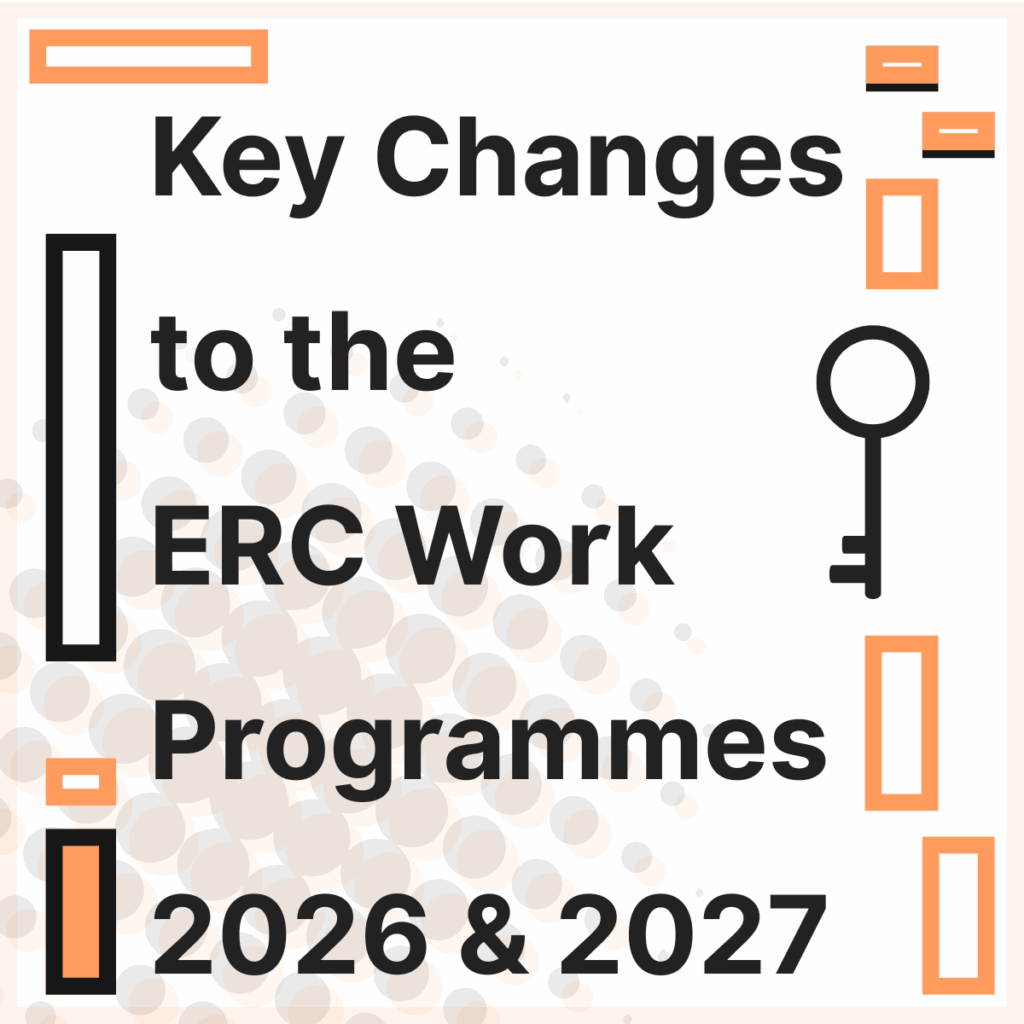In July this year, the 2026 Work Programme will become binding; significant changes to the application and evaluation process will take effect. From 2027, eligibility for Starting and Consolidator Grants will be expanded.
Application Structure: Part B I replaces the Extended Synopsis and describes the idea, background, objectives, and strategy in five pages. Part II covers methodology, work plan, risks, resources, and budget in seven pages (ten pages for Consolidator Grants).
Evaluation: Step 1 evaluates only the project idea, CV, and track record. Step 2 reviews the full application, including feasibility and resources. Feasibility is no longer assessed in Step 1.
Additional Funding: Researchers outside Europe can now apply for up to €2 million extra for start-up costs; EU researchers remain eligible for up to €1 million. Personnel costs will be eligible starting 2026.
New Funding Instrument (Working Title “Super Grants”): A new long-term funding instrument will be introduced in 2026 alongside the existing instruments. It will support projects with a duration of up to 7 years instead of 5 and will have higher budget limits. Further details will follow.
Eligibility: In addition to parents who have taken parental leave, victims of violence will also be able to extend their eligibility window.
Resubmissions and Follow-up Projects: Synergy Grant applicants with a “B” rating in 2025 will not be eligible to apply in 2026. PIs with ongoing ERC projects can apply for a new grant only if it ends within two years after the call deadline. Each PI may receive one Starting or Consolidator Grant.
ERC Work Programme 2027: From 2027, Starting Grants will be available up to ten years after the PhD, and Consolidator Grants up to fifteen years after the PhD. Existing rules on eligibility extensions remain.
For more information, see: https://erc.europa.eu/news-events/news/changes-2026-and-2027-work-programmes
